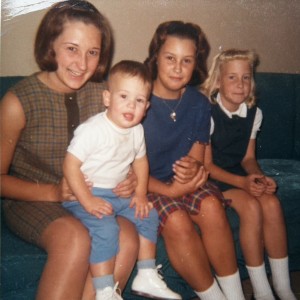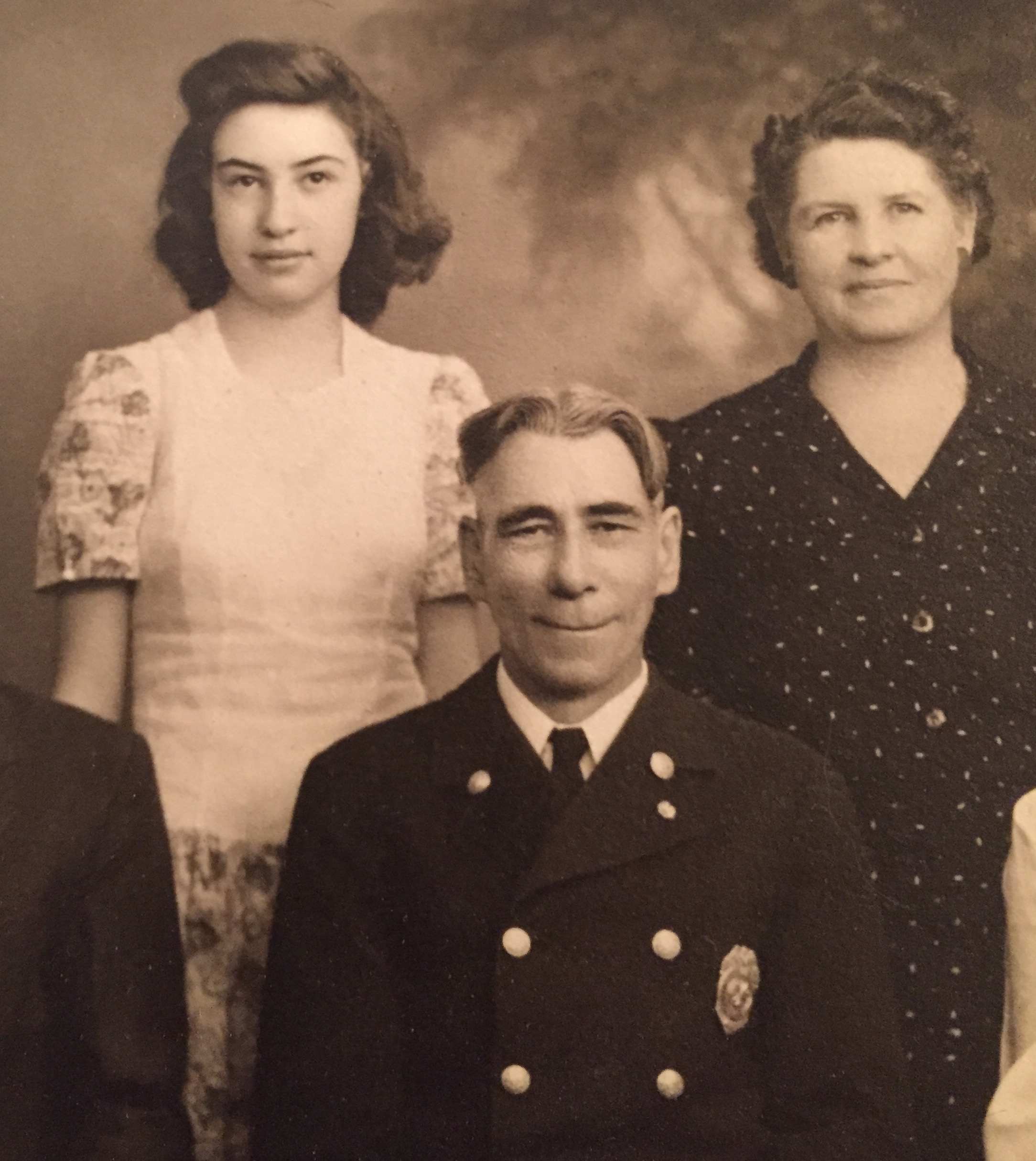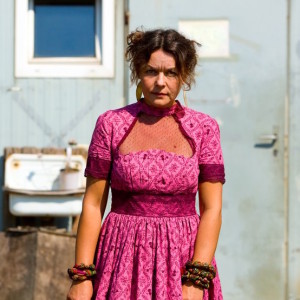Prophetess of Spiritual Apocalypse
My mother annotated her environment. Florence was mainly a homebody and as we’ve been cleaning out her house, my sisters and I keep finding little handwritten notes – hundreds of them – often in nearly microscopic but always beautifully legible cursive. She made notes in expected places like book margins, on the edges of photographs, and on calendars.

But she also wrote highly detailed, sometimes florid notes on un-special pieces of scrap paper. She would then tape them to the bottoms of delicate china, or sturdy silver trays. She tucked them between the colorful folds of fancy silk scarves, in jewelry boxes, in the labels of long unworn clothing. I found an old, pale yellow Pepsodent toothbrush holder with a tidy little reminder slipped inside that it had been, “Used only three nights in Las Vegas.” Her sacred and lucky toothbrush case.

All of this would be hilarious if it were not also heartbreaking. There is a soulful quality to the endeavor of cataloging one’s surroundings – something generous that is close to being spiritual. Some of her commentary is delightful and lighthearted – charming reminders of the origins of her keepsakes. Many of her notes are simple, straightforward, and descriptive. But a few individual scraps of paper betray the quivering hand of a writer who set down each careful word with anguish, squinting, and with her eyes full with tears.

She was determined to get her story down and began writing little notes early in her life – we have found her memories recorded and attached to items dating from her girlhood days in the 1930s and 1940s. She was fiercely devoted to her parents and dearly loved her family. But the frequency and the urgency of her existential footnotes reached new levels during crises – for instance, after my dad died – and then especially in later years when she was developing signs of dementia. Most of her notes from that time are clearly meant for dual purposes – first, to remind herself of herself; and also, to tell others of the significance of her important things and the people who populated her life. Taped to the clapper of a ceramic handbell: “From Phil, My Dear Husband, Our children’s Daddy – Berlin, Germany – 1983 – He LOVED you. Great Guy!”
Combined with the practical necessities of tying up loose ends at the end of a loved-one’s life – these little notes have made cleaning out our mother’s home a form of emotional anthropology for my sisters and me. During our times spent together going through mom’s things, there is a mixture of joy and sorrow that we feel, both individually and as a sibling group. There is banality, mystery, and gratitude in our work – respect and confusion. It makes me sorry for anyone who must do such things alone, because it is exhausting. Each detail, each story, and each shred of paper is really a plea: “Please remember me.”
These are matters that also have me thinking about how other people tell their stories and the importance of doing so. Recently I learned about a fascinating Ukrainian artist named Mariana Sadovska, (thanks to coverage by NPR’s All Songs Considered of globalFEST 2016 at Webster Hall in New York City.) Writer Rob Weisberg’s summary of her is very fine: “… a charismatic and adventurous musical and theatrical performer. She began her career in avant garde theater, but also traveled across Ukraine, her home country, to learn songs from village women. She combines these influences and uses an array of traditional and non-traditional vocal techniques to create some of the most distinctive interpretations of traditional song you’ll hear anywhere.”

I will add that I first heard Sadovska while driving my car ninety minutes from my home to my mother’s. I was alone, and by the end of the first song I was so moved – so shaken – that I impulsively growled out a loud, “WOW!” when the song’s last notes faded away. Her singing infused me with a shock of adrenaline and emotion. I am unaware of any Eastern European heritage in my family, but this music hits me the way blues must hit others. I immediately replayed the song and my reaction was the same.
There are centuries contained in Mariana Sadovska’s voice, and multitudes. It is as if she has the ability to gather up into her body the events of years, and the anxieties, grief, and joys of souls from the past, then unloose them in displays of spectacular primal vocal variety. Her voice is at times otherworldly but always distinctly human, like the crying of a single soul echoing out from a thousand-year old tomb, or a curious and soothing sound riding to you on a breeze from the heavens. At times it is as dark as the inside of a closed coffin. And at other times her voice is an eruption of fire, while she embodies a witchy prophetess of volcanic spiritual apocalypse.

Although the methods and the scales are poles apart, it strikes me that this wonderful artist, (with the devastating notes of her songs,) is making the same essential plea that my mother made with her notes: “Please remember me.”
I cannot decipher the lyrics of most of this song – her incantations are in Ukrainian, Russian, or Polish – but a chill will almost certainly rush over you when she sings a few words in English and you realize that the intensity of her tone and attitude are products of an undeniable universal affliction – the desolate torments of reflecting upon lost time and wasted youth.

Modern and ageless simultaneously, here is a link to a perfectly titled song:
Spell by Mariana Sadovska recorded live at globalFest 2016.
And this one:
After You’ve Gone by Marion Harris (1918 Victor).
Please remember me.